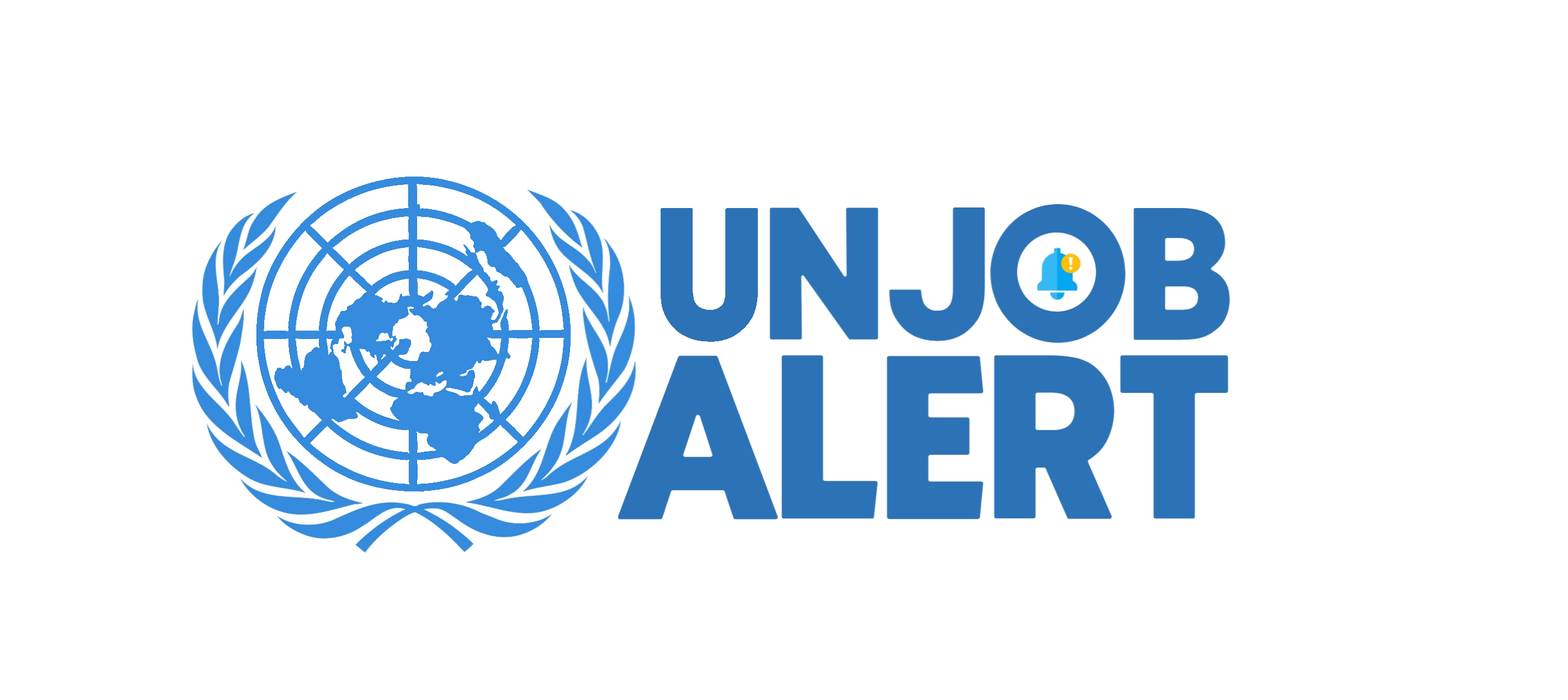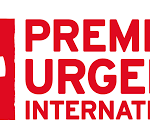Description
Position: Deputy Country Director – Programs
Line Manager: Country Director
Direct Reports: Senior Technical Advisors for Health, Gender and Climate Change, The MEAL Team, Risk and Safeguarding and Business Development Unit
Department: Programs
Duty Station: Erbil or Baghdad, with frequent travel to field sites
Starting Date: As soon as possible
Contract Duration: 12 months with possible extension (6 Month probationary period)
CARE INTERNATIONAL
CARE International (CI) is among the world’s largest international non-governmental humanitarian relief and development confederations. Drawing on more than 75 years of experience, through its 21 Members, as both a practitioner and thought leader, CI’s work reaches over 100 countries worldwide to save lives, defeat poverty and achieve social justice.
CARE’s vision is to seek a world of hope, inclusion, and social justice; where poverty has been overcome and people live in dignity and security. CARE focuses heavily on women and girls, and the areas of gender equality, diversity, and inclusion are at the center of our work because we know that we cannot overcome poverty and social injustice until all people have equal rights and opportunities. We recognize that power relations between people and within systems and structures are unequal and that these are entrenched in our broader systems, structures, and institutions.
At the core of the CI Confederation is a globally distributed Secretariat, which provides coordination and support to its members in areas including governance, strategic planning, communications, membership development and accountability, advocacy, humanitarian response, and program development. In addition, the Secretariat represents the CI Confederation at the United Nations and the European Union, and with other external stakeholders.
CARE INTERNATIONAL in Iraq
CARE International has worked in Iraq since the beginning of the humanitarian crisis in 1991. CARE International reopened its programming in Iraq in 2014 after a military offensive in Ninewa, which displaced hundreds of thousands of people into the Kurdistan Region of Iraq. Together with local partners, CARE delivered humanitarian and development assistance to the most vulnerable populations.
CARE is registered with both the Kurdistan Regional Government and the Iraqi Federal Government. Operating in Basra, Ninewa, Duhok, Salahaddin, and Anbar, CARE collaborates with local organizations to strengthen their capacities and implement transformative programs. These efforts align with CARE’s global theory of change, which emphasizes building individual agency, reshaping relationships, and transforming structures to create sustainable and inclusive development outcomes. Through this approach, CARE ensures that its interventions address root causes, empower communities, and promote systemic change for long-term stability and resilience.
CARE Iraq Culture and Staff
CARE Iraq is committed to fostering an environment where staff can grow both personally and professionally. We promote collaboration, diversity, and open communication, ensuring every voice is heard and valued. Our workplace culture recognises the importance of our mission and encourages innovation, creativity, and mutual respect, making it a supportive environment for all.
We are proud of the gender balance within our workforce and are committed to equity and justice by creating a safe, inclusive space where everyone can thrive. Our goal is for CARE Iraq to reflect the diverse communities we serve and to deliver impactful change through the work we do.
Promoting Equality, Justice, and Climate Responsibility
Employees at CARE Iraq are expected to embody the organization’s core values of equality, justice, and climate responsibility. This includes fostering equity between men and women, promoting climate justice, and embedding these principles into the organizational activities and work culture overall. A key focus internally and externally is on empowering women through leadership opportunities, professional growth, and meaningful participation in decision-making, while addressing workforce imbalances and amplifying women’s voices to drive transformative change.
Equally, all employees of CARE Iraq are expected to prioritizes climate responsibility by encouraging sustainable practices, reducing ecological foot print, drive positive environmental impact, and supporting climate-affected communities. Integrating resilience and sustainability into all operations and actions will ensures a just and equitable future.
These principles are central to CARE Iraq’s vision for justice, fairness, and environmental stewardship.
Job Summary
As a key member of the Senior Leadership Team (SLT), the Deputy Country Director – Programs (DCD-P) leads the design and delivery of high-quality programs in alignment with CARE Iraq’s Country Strategic Plan. The DCD-P ensures effective program implementation, fosters learning and innovation, supports strategic fundraising, and strengthens partnerships and localization efforts. This role also provides direct leadership to technical, program quality, advocacy, and partnership teams.
Key Responsibilities and Tasks
Strategic Program Leadership
- Lead the implementation and periodic review of CARE Iraq’s Country Strategic Plan, ensuring alignment with organizational priorities on gender justice, localization, climate action, and humanitarian-development nexus.
- Maintain a strong understanding of the political, social, and humanitarian dynamics across Iraq and integrate this into program planning.
- Ensure cross-sectoral integration, adaptive program design, and complementarity with other actors.
Oversight of Program Implementation
- Provide leadership and accountability for the overall implementation of CARE Iraq’s program portfolio, ensuring timely, quality, and compliant delivery.
- Oversee performance of project implementation teams and ensure alignment with donor regulations, internal policies, and community needs.
- Lead the quarterly and annual program review processes, facilitating cross-functional coordination and course correction.
- Champion the integration of gender, protection, and accountability in all programs.
Partnerships and Localization
- Oversee CARE Iraq’s partnership strategy and ensure effective implementation of the Partnership Framework.
- Ensure transparent partner selection, joint program design, and equitable risk and responsibility sharing.
- Strengthen partner capacity and promote mutual accountability and learning.
- Ensure partnerships are adequately supported, documented, and monitored in alignment with CARE’s global partnership principles.
Program Development and Resource Mobilization
- Work closely with the Head of Program Development & Quality to lead business development efforts and cultivate strategic donor relationships.
- Provide leadership on proposal design and positioning, ensuring inclusion of gender transformative and climate-resilient approaches.
- Contribute to the development and execution of CARE Iraq’s Fundraising and Visibility Strategy.
- Support innovation, pilot initiatives, and adaptive learning to enhance CARE’s value-add in Iraq.
Program Quality, MEAL, and Advocacy
- Ensure CARE’s program approaches are grounded in robust evidence, quality benchmarks, and accountability frameworks.
- Support MEAL systems and learning agenda implementation.
- Guide the integration of research, evaluations, and advocacy into programming to drive influence and scale.
- Work with the Head of Advocacy and Communications to develop joint influencing agendas with partners.
Budget Management and Compliance
- Oversee the program budget portfolio, ensuring expenditure aligns with implementation plans and donor commitments.
- Monitor budget forecasts and variances, and ensure timely financial reporting in collaboration with Finance and Grants teams.
- Ensure budget holders are capacitated and supported in financial oversight and compliance.
Staff Leadership and Team Development
- Lead and coach a high-performing, cross-functional program team, promoting collaboration and accountability.
- Drive nationalization of key program roles and inclusive talent development.
- Ensure effective performance management, mentoring, and succession planning within the department.
Representation and External Engagement
- Represent CARE Iraq with donors, UN agencies, INGO coordination platforms, government bodies, and local stakeholders.
- Cultivate relationships that advance CARE’s visibility, credibility, and funding prospects.
- Participate in relevant sectoral and inter-agency fora and consortia.
Staff Risk Management Responsibilities
CARE believes that personal risk management is crucial for staff; however, the risk management cannot be achieved unless each staff member fulfills the following responsibilities. Failure to do so can not only endanger their own safety but also compromise the entire team and organization.
Maintain Situational Awareness:
- Staff must maintain a high level of situational awareness at all times. This includes being vigilant about their surroundings, recognizing potential threats, and understanding the local context and culture.
Stay Informed:
- Staff must stay informed about the security situation in their area of operation and avoid complacency. They should promptly read and understand information shared by the organization in relevant communication channels.
Comply with Protocols:
- Staff must strictly adhere to the risk protocols and guidelines established by their organization. This includes following travel advisories, checking in regularly with designated security contacts, and complying with curfews or movement restrictions.
Emergency Preparedness:
- Staff must be well-prepared for emergencies by knowing the location and contact details of local emergency services, the nearest hospital, and their organization’s security focal point. They should carry essential emergency supplies, such as first aid kits, communication devices, and personal identification, and participate in regular safety drills and training sessions.
Maintain Reliable Communication:
- Staff must ensure they have reliable means of communication at all times and keep their phones charged and operational. They should keep the team informed of their whereabouts, especially when traveling or working in the field, and establish check-in routines to confirm their safety regularly.
Respect Local Norms:
Staff must understand and respect local customs, traditions, and social norms to avoid unnecessary risks and foster good relations with local communities.
Additionally, all staff members must
Take Reasonable Care
- Staff must take reasonable care for their personal health, safety, and security and ensure that their actions do not harm other staff members.
Comply with Instructions and Policies
- Staff must comply with the orders/instructions of the Risk focal points as required, and adhere to any workplace policy/procedure aimed at increasing the safety of all staff, including Standard Operating Procedures (SOPs) as laid out in the Risk Management Plan.
Ensure Equipment Readiness
- Staff must ensure that all radios, Track24 units, Satphones, helmets, body armour, trauma/first aid equipment, and any other personal protective equipment and items used in field operations and elsewhere are in a safe and serviceable condition and used in accordance with their operating instructions. All damages must be paid for personally.
Supervise and Train
- Supervisors of other staff have a Duty of Care to ensure that their staff are not put at risk and are adequately supervised while performing their work. Managers, supervisors, and staff must ensure that before they, or their staff, work in field-based locations, they receive adequate training in security, field health and safety, and risk management.
Report Incidents Promptly
- Staff must promptly notify the Risk focal point of any field/operational Risk, health, safety, and security incidents that occur.
Qualifications and Skills
- Master’s degree in international development, public administration, or related field.
- Minimum of 7 years’ experience in program leadership roles within humanitarian and development contexts, with at least 3 years in senior management.
- Demonstrated expertise in strategic leadership, program quality, partnership management, and fundraising.
- Deep knowledge of gender-transformative programming and locally led approaches.
- Proven experience managing complex program portfolios, donor relations, and cross-sectoral teams.
- Excellent communication, influencing, and representation skills.
- Strong understanding of the Iraqi operating context is highly desirable.
- Fluency in English required; Arabic and/or Kurdish an asset.
.Additional Expectations
- Actively contribute to CARE’s mission, visibility, and advocacy on social media and external platforms.
- Comply with CARE’s policies including Safeguarding, Safety and Security, and promote gender equity and climate responsibility internally and externally.
- Serve as a role model for CARE values of courage, ambition, respect, and equality.
Accountability within CARE
A commitment to CARE’s values and integrity framework is critical to working with CARE. Any candidate offered a job with CARE will be expected to adhere to the following key areas of accountability:
- Comply with CARE’s policies and procedures as well as with international standards and best practices with respect to safeguarding, code of conduct, health and safety, confidentiality, do no harm principles and unacceptable behaviour protocols.
- Report any concerns about the welfare of a child or vulnerable adult or any wrongdoings within our programming area.
- Report any concerns about inappropriate behaviour of a CARE staff or partner
Safeguarding
At CARE, we recognize our responsibility to promote human dignity and social justice within our organization. At the heart of CARE’s efforts to impact poverty and social justice is our engagement with marginalized communities. We place human dignity at the center of our work. We are aware of the importance of organizational culture and accountability in enabling a safe and supportive environment for programme participants, the communities where we work, our staff, related personnel and our partners.
Children and vulnerable adults who come into contact with CARE as a result of our activities must be safeguarded to the maximum possible extent from deliberate or inadvertent actions and failings that place them at risk of abuse, sexual exploitation, injury, and any other harm. One of the ways that CARE shows this on-going commitment to safeguarding is to include rigorous background and reference checks in the selection process for all candidates.
How to apply
Please send your complete application package only in English to application@care.de, no later than 20 August 2025, with “Deputy Country Director – Programs – CARE Iraq” as the subject title of your email.
Please include the following information in your application – CV, motivation letter, and Core Skills overview highlighting years of experience in the following areas:
Applications will be reviewed on a rolling basis. Female candidates are strongly encouraged to apply.
Please note that only shortlisted candidate will be contacted. References will only be contacted after the interview.



